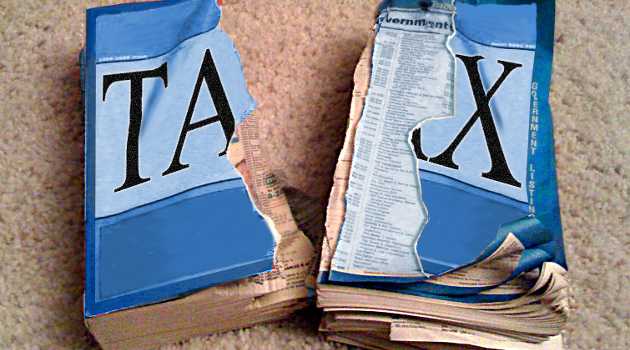I’m a long-time proponent of tax reform and I mostly focus on the flat tax, but as I wrote last month, a national sales tax also is a good option.
Here’s some of what I said on the topic back in 2007.
The key thing to understand is that the flat tax and sales tax are different sides of the same coin.
What differs is the collection point. A flat tax takes a slice of your income when you earn it while a sales tax gets a slice of your income when you spend it.
But otherwise the two plans have a lot of similarities. Both tax at a low rate. Both get rid of double taxation (in the jargon of economists, this means a “consumption base” system). And both eliminate corrupt and distorting loopholes.
Those are the main economic arguments, though it’s also worth noting that either version of tax reform would allow a dramatic downsizing of the IRS.
I don’t know whether that should be a victory over bureaucracy or a victory for civil liberties, but it would be a good outcome.
In a column for today’s Wall Street Journal, Professor John Cochrane of the Hoover Institution makes the economic case for reform. Here are some excerpts.
…the “Fair Tax” bill…eliminates the personal and corporate income tax, estate and gift tax, payroll (Social Security and Medicare) tax and the Internal Revenue Service. It replaces them with a single national sales tax. Business investment is exempt, so it is effectively a consumption tax. Each household would get a check each month, so that purchases up to the poverty line are effectively not taxed. …our income and estate tax system is broken. It has high statutory rates with a Swiss cheese of exemptions, immense cost, unfairness and distortion. …A consumption tax, with none of the absurd complexity of our current taxes, is the answer. It funds the government with the least economic distortion. …A range of implicit subsidies will disappear. Good. Subsidies should be transparent. Money for electric cars, health insurance, housing, and so forth should be appropriated and sent as checks, not hidden as tax deductions or credits.
The bottom line is that we would have a much less destructive system with a national sales tax.
That being said, there is a very relevant debate about whether a sales tax is the politically smart way of trying to fix tax code.
In the video above, Bruce Bartlett argued that incremental reforms could solve almost all of the problems in the current system. That’s technically true, but tinkering with the tax code over the past 110 years is what’s produced the current mess.
So is it realistic to think that tinkering in the future will yield good results?
Regardless of our strategy, the odds of a good outcome are not favorable, but my two cents is that our best bet is to advocate for big changes like either a flat tax or national sales tax.
———
Image credit: Chris Tolworthy | CC BY 2.0.



